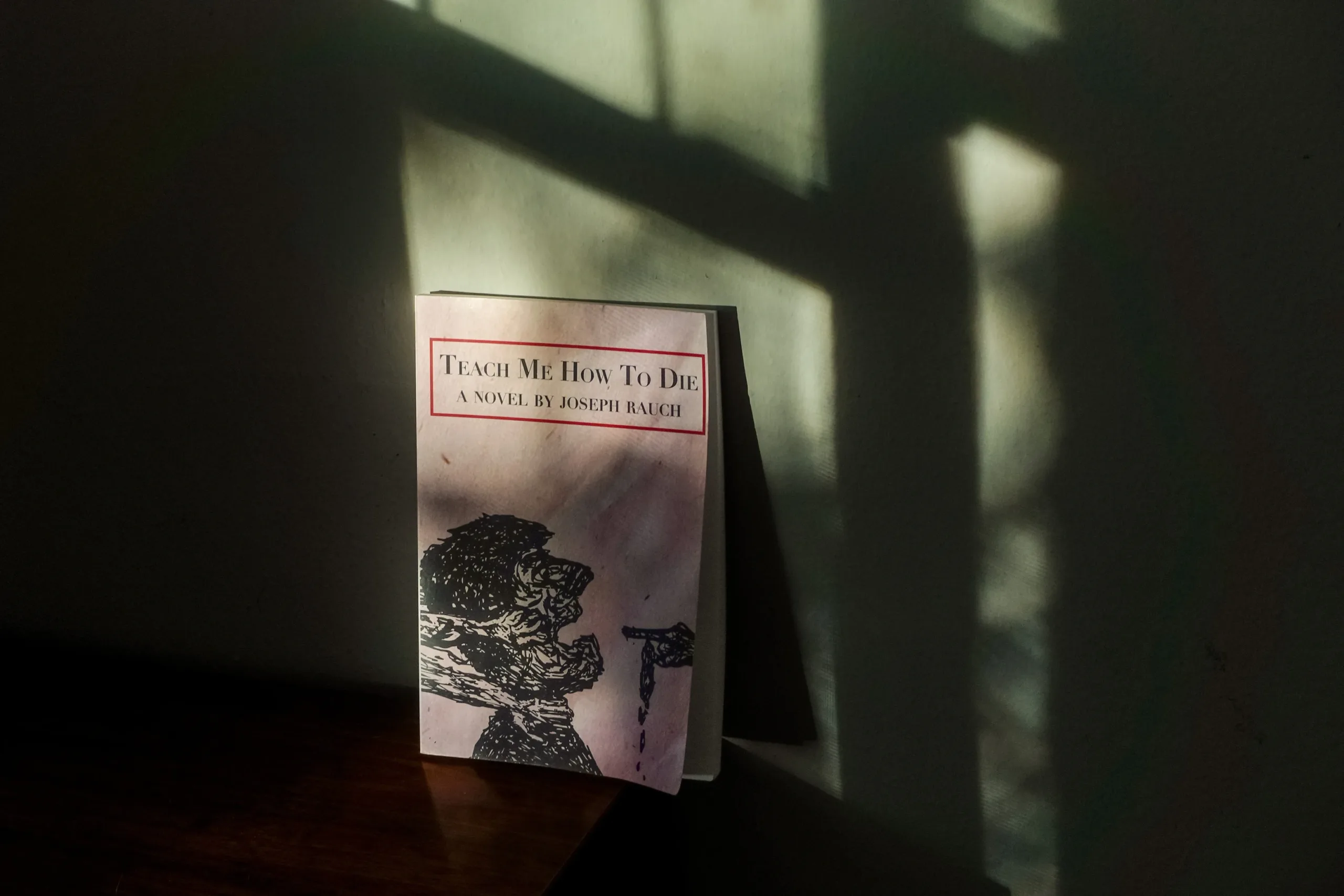As a writer and political activist, I often think about labels. Opposing political coalitions constantly try to marginalize each other by plastering labels meant to be pejorative.
For decades, the U.S. political left has been split into two halves that incessantly snipe at each other. Since around 2017, I have considered myself a member of the further left half, the one that tends to vote outside the two-party system. Neither side has an official name.
During the last few years, I’ve heard the other half of the left call us names with an obvious intention of negativity. These are the labels that stand out in my mind:
- The Dumdum left (spelled a few different ways, including with two words or hyphenated)
- the fake left
- the Jimmy Dore left (meant as pejorative because he is controversial and often accused of being on the right)
When people try to stick a label on your group — and you can tell their tone is negative — it’s natural to resist. Usually I’m certain that resistance is the wise decision. If we allowed centrists to officially name our faction the Dumdum left or the fake left, I doubt we would see any benefit. “The Jimmy Dore Left” would have pros and cons, but I think it’s foolish to overemphasize a single person. There was a “Bernie Sanders Left,” and it fell apart the moment Bernie bent the knee to Biden.
Despite these problems, I try to patiently examine every pejorative political label that crosses my feeds or beats on my eardrums. There are rare instances where your political enemies apply a label that ends up being a net positive toward your goals.
Remember when Republicans dubbed the Affordable Care Act “Obamacare”? At first Barack Obama tried to dodge the label because he correctly identified its malicious intentions. Later Obama embraced the name. Eventually “Obamacare” became neutral, even positive in some circles.
Enter Stage ‘Far Left’
Since Congressman Ro Khanna wrote the term, “far left,” in a 2022 Tweet, I’ve been intermittently thinking about it. Unfortunately I didn’t have my own publication back then, and I didn’t feel inspired to write on Medium. Now I have the proper channel and motivation. I believe the “far left” language issue is more relevant now than ever.
I won’t torment you by recapping every detail of the situation that led Ro Khanna to Tweet that term. You’re welcome to research the event and form your own opinion. The summary is that Khanna was arguing with Max Blumenthal, editor-in-chief at The Grayzone news website, about U.S. foreign policy toward Ukraine after Russia’s invasion. People on my side of the left, including Blumenthal and his colleagues, have asserted that the U.S. should prioritize peace negotiations with Russia and Ukraine. In 2022 the standard argument from the other half of the left was that peace negotiations were not possible or should not be attempted.
When Khanna referred to our coalition as the “far left” in that context, it was the first time I had ever heard a politician use that term in a way I might consider accurate and fair. Before then, I had primarily heard the term from conservative commentators claiming Biden was “far left.” Laughable! Biden is a textbook centrist, a word I use synonymously with “liberal” and “neoliberal.”
Regardless of the likelihood that Khanna intended “far left” to cast aspersions on my ilk, I couldn’t help but ruminate on how the term made sense. If the general public perceives people like Khanna as left, and we are further to the left, there is a logic to the literal meaning of the “far” in “far left.”
‘Far Left’ Was Far From My First Choice
Ironically, one of my political goals is to change the discourse so people like Khanna, who only vote for the Democratic Party in general elections, are viewed as centrists instead of leftists. If we can define the entire left as voting outside the two-party system in national elections, we might gain increased traction for third parties becoming disruptive and eventually winning.
Unfortunately, in the current reality, we have to contend with the fact that millions of Vote Blue No Matter Who folks are going to continue calling themselves leftists or at least claiming they are on the left somehow. Until we achieve the dream of a left that is only for non-duopoly voters, “left” is not a sufficiently specific label.
“Populist” is another word I have pored over. My — perhaps unrealistic — ambition is for our left faction to completely own “populist” and all its conjugations. The vast majority of Democrats and self-described liberals don’t want to be associated with “populism,” as they perceive it. Sadly, the reason populism repels liberals is the same reason our left faction is unlikely to dominate that word in my lifetime: right populism.
Over the years there were a few other labels I preferred over “far left” — “progressive” and “left populist” come to mind — but the Vote Blue No Matter Who half of the left gradually diluted all of them. “Far left” might be the only viable label remaining, because I can’t imagine the Democrat Party voter leftists would ever want it.
What About Socialism and Communism?
Compared to our faction of the left, the Vote Blue No Matter Who people have more effectively claimed “socialism” and all its conjugations. Bernie Sanders, perhaps the most famous self-described socialist in modern American history, has become an ally to centrists such as Joe Biden. Nathan J. Robinson, Editor at Current Affairs magazine and author of “Why You Should Be a Socialist,” has the same Vote Blue No Matter Who voting mindset as the average centrist.
Nearly every self-described communist I’ve met in recent years has not been a Democrat. If we agree, however, that coalition building is our top priority, communism is not an optimal linguistic choice at the moment. Even with relatively benign sounding words like “leftist,” it’s been difficult to expand our faction. “Communist” is exponentially more stigmatized and unclear.
Populist coalition building campaigns around “communism” language have had mixed results. Since 2023, political commentator Jackson Hinkle and his colleagues have been trying to popularize and explain their idea of “MAGA Communism.” It seems like these activists want to somehow expropriate Trump’s hold on “MAGA,” redefine the term and unite far left and far right coalitions around shared anti-imperialist policies. And I thought my linguistic goals were ambitious!
It seems like both factions of the left have ignored, dismissed or mocked MAGA Communism. I have yet to meet anyone on the far left who takes the idea seriously.
Conversely, there are self-described communist activists whose campaigns are more aligned with typical far left ideas and coalitions. The top person I think of is Rome, subject of Write Brain TV’s “Rome: Death to America” documentary and member of the Revolutionary Blackout Network. Rome has conducted many successful mutual aid operations, including Tour For The Poor.
Can We Overcome the Negative Connotation of ‘Far,’ or Should We Find Another Way?
When Khanna and his coalition say “far left,” they mean “too far,” “unreasonably far.” Can we remove the stench of the “far” in “far left”? I don’t know. This point is where I get stuck. This obstacle is why I’m still deciding whether I should fully endorse the far left label.
Coalition building is always my top priority. If we can get “far left” to a place where it has a neutral, accurate connotation and far reaching consensus, the term would be useful for efficient communication and coalition growth.
Politically persuading non-far left people in my social circles and online has been incredibly time-consuming and inefficient. I have to repeatedly explain the entire left ecosystem, the factions, the opposition to lesser of two evils and harm reduction thinking, etc.
Political words are tools for gaining and wielding power. The more we improve and distribute our tools, the more we can accomplish.
Trying ‘Far Left’ Doesn’t Mean Permanently Giving Up on the Other Words
As you might already know, online content has been a huge part of my career. Content is a game of linguistic domination. Every company I’ve worked for has aspired to own certain “keywords”: words, terms, phrases, statements, incomplete sentences, slogans and questions relevant to their audience.
In Ahrefs, a popular search engine optimization tool I use, there is a feature that shows you how many people a month search for a word and how difficult it is to claim that word (expressed in a score from zero to 100). Usually, the most popular words are also the hardest to conquer.
One strategy I’ve employed is to start with keywords that fall into a sweet spot: medium popularity and attainable difficulty. The more I claim these types of keywords, the more fuel I have to eventually lay siege to the keywords with high popularity and high difficulty. In nearly every full-time job I’ve had, my siege has worked.
I’ve observed many colleagues who have focused only on the top prizes. All of them have either failed or won Pyrrhic victories.
Right now I believe “far left” is an attainable starting point for our political linguistic domination and destigmatization. If we succeed, which keyword should we go after next?
Get the latest of The Rauch Review in your inbox, discover books you won’t see in stores, stay up to date on the “Rauching to Judgment” podcast and more.






